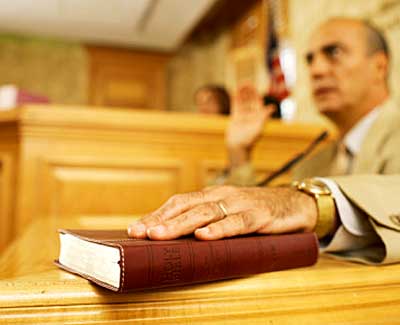
 You’ve probably heard the term “expert witness” on TV dramas, but these experts actually play a very real and important role in personal injury cases.
You’ve probably heard the term “expert witness” on TV dramas, but these experts actually play a very real and important role in personal injury cases.
Also known as a judicial expert or professional witness, this figure doesn’t actually “witness” a crime. Instead, they’re considered to have expertise and key knowledge about a particular subject due to their education, experience, skill or training. In general, they know more about a specific subject than the average person, whether it’s technical, scientific or something else.
For example, an expert witness might be an orthopedic physician who intimately understands musculoskeletal injuries sustained in an accident. Their opinion about an issue or evidence can be of paramount importance for either a judge or jury to make the most informed decision. However, their opinion isn’t necessarily the final answer—it’s subject to rebuttals, just like any other type of evidence in a personal injury case.
Most Common Needs
Expert witnesses might be used for pretty much anything in a lawsuit or trial, but they’re most often depended on for their expertise on injury severity, degree of sanity, the cause of failure in a device or machine, care costs, loss of earnings and other similar issues.
It’s also worth noting that, especially in the United States, the use of expert witnesses can come with criticism. Oftentimes, when an expert witness is presented by one side, the other side can find a different expert who will refute the other’s claims.
To qualify as an expert witness, the person must be considered qualified on a particular topic. The Federal Rule of Evidence 702 (FRE) requires that the person have “specialized education, training, or practical experience in the subject matter relating to the case.” No personal opinion is allowed, and the witness must base a professional opinion rooted in the facts and evidence.
There are two types of expert witnesses: Non-testifying and testifying. Non-testifying witnesses are hired to evaluate a case, and their opinion is usually void from “discovery,” which means the opposing side won’t know their opinion.
While this expert doesn’t testify, they may be at court or the trial to provide ongoing information to the party who hired them. A testifying expert isn’t protected from discovery with some exceptions. In personal injury cases, some of the most common testifying experts include forensic accountants, forensic engineers, employment consultants and care experts. These experts can make or break a case, which is why they’re so crucial. They also can be very expensive, which is why litigation is so costly.